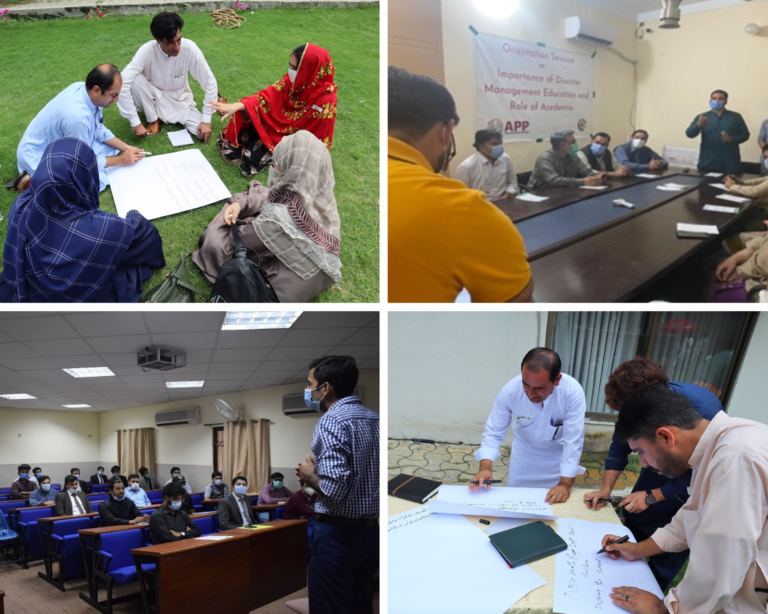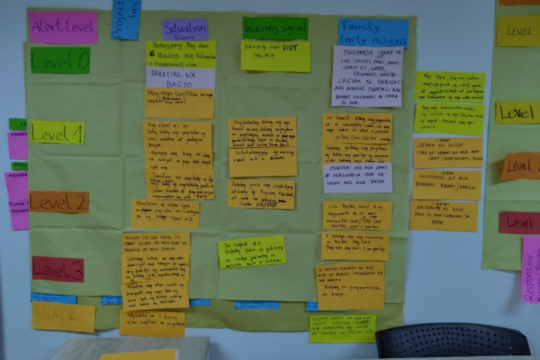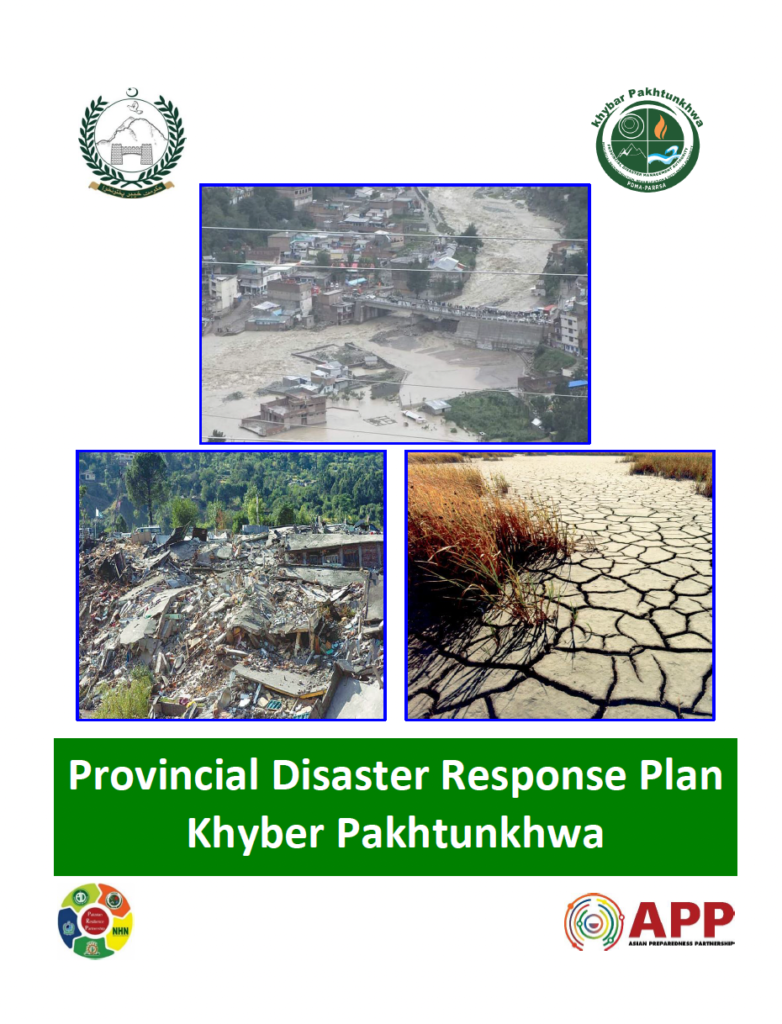
Developing Localized Policies
The Pakistan Resilience Partnership (PRP) seeks to improve strategic disaster response at the local level. With this consideration, the partnership supported the formulation of disaster response plans with the Provincial Disaster Management Authority (PDMA) of Khyber Pakhtunkhwa (KP), State Disaster Management Authority (SDMA), Districts Swat (KP), and Hattian (AJK) through technical and financial support. The initiative seeks to support provincial and district-level governments for effective response to emergencies. It also details the roles and responsibilities of all stakeholders and a meticulous coordination mechanism.
Enterprise with Better Endurance
PRP collaborated with the Federation of Pakistan Chamber of Commerce and Industries (FPCCI) to formulate of business continuity plan (BCP). Kazmi Marble and Granite Industry situated in the small industrial estate of Abbottabad was selected in consultation with FPCCI. An expert was recruited to devise the plan. It will serve to support the business community proactively planning to avoid and mitigate the risks associated with the disruption of operations by crisis/ disasters. The plan will also serve as a guiding document for other industries in managing their business-associated risks during emergencies/crises.
Standardizing Effective Response
PRP conducted three Training of Trainers (ToT) on humanitarian standards for effective response. It sought to contribute to Pakistan’s ongoing efforts to improve the effectiveness, efficiency, and quality of its emergency preparedness and response aligned to humanitarian standards. The ToT was attended by 84 participants (55 males, 29 females) Disaster Management Authorities, Pakistan Red Crescent Society (PRCS), the Punjab Emergency Services Department (PESD), the Pakistan Boy Scouts Association, the Federation of Pakistan Chamber of Commerce (FPCCI), civil society organizations (CSOs), and the private sector. They covered a complete competency-based curriculum to prepare aspiring humanitarians through international humanitarian standards with contextual examples. This training explained the need to adhere to the Core Humanitarian Standard on Quality and Accountability (CHS) – a set of standards that outline the policies, processes, procedures, and practices that an organization needs in order to deliver quality assistance while at the same time being accountable to communities and people affected by crises. The training sought to equip stakeholders with knowledge of CHS and its commitments as well as the application of these standards during any emergencies/ response.
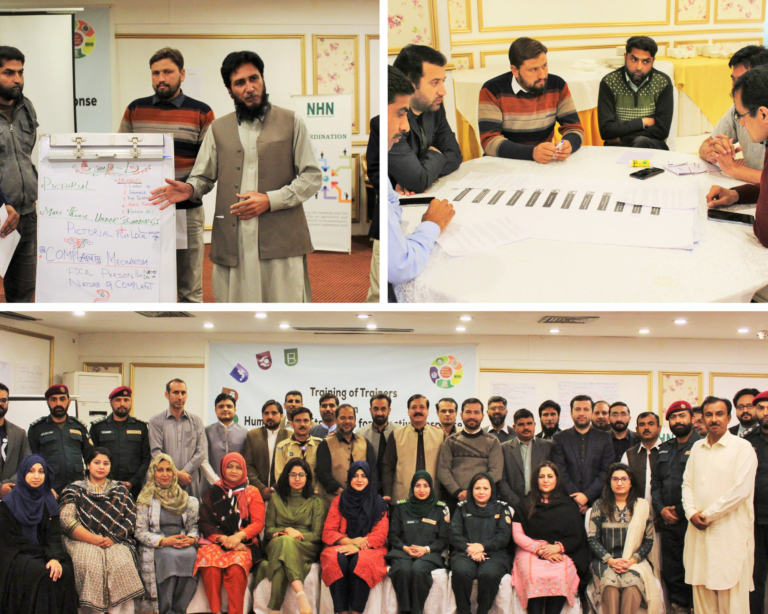
Curating Knowledge for Greater Awareness
PRP has developed a various knowledge products to develop the awareness of its partners, promote/enhance South-South learning and knowledge exchange amongst Asian Preparedness Partnership (APP) countries, and share local expertise and best practices. The partnership has published the eighth and ninth editions narrate topics centered on Localization Through Innovative Approaches and Real Life Heroes respectively. The eighth edition features innovative localized best practices in Pakistan and the Asia-Pacific region. The ninth edition concentrates on humanitarian workers and their immediate support to the communities they support through stories of emergency responders.
Song, rhymes, and games were developed to teach children about disaster preparedness in a way that bring learning and fun together. PRP has extended its efforts to bridge academia and disaster risk reduction by supporting university students conduct research in line with the priorities of the National Disaster Management Authorities (NDMA) to be published for further awareness.
Strategizing the Optimal Way Forward
PRP developed two policy documents to strengthen the linkage between partners with existing coordination mechanisms and achieve sustainability through the systematic implementation of quality enhancement procedures. One of the guidelines was developed to ensure the inclusion and participation of PRP partners in the existing cluster and coordination mechanisms with the government, United Nations (UN), and other agencies. It strives to broaden the participation of humanitarian clusters by proactively inviting actors such as the private sector, academia, and media who were previously not included in Pakistan’s humanitarian architecture/coordination mechanism.
The Resource Generation for DRR was published to explore avenues to strengthen the systems by investing in disaster risk reduction (DRR) and disaster risk management (DRM). The document unpacks the systematic and intricate resource base system that is in place in Pakistan. It takes into account redistributing resources to improve essential services including DRR. The guideline also elaborates on the incumbent approaches, players, and systems at various levels for the generation and distribution of resource mobilization generation and financial resources. Additionally, it also underscores avenues for citizen action that have the potential to inform the process of designing a DRM regime. These processes can lead to increase budgetary allocations for public services such as disaster risk reduction and response.
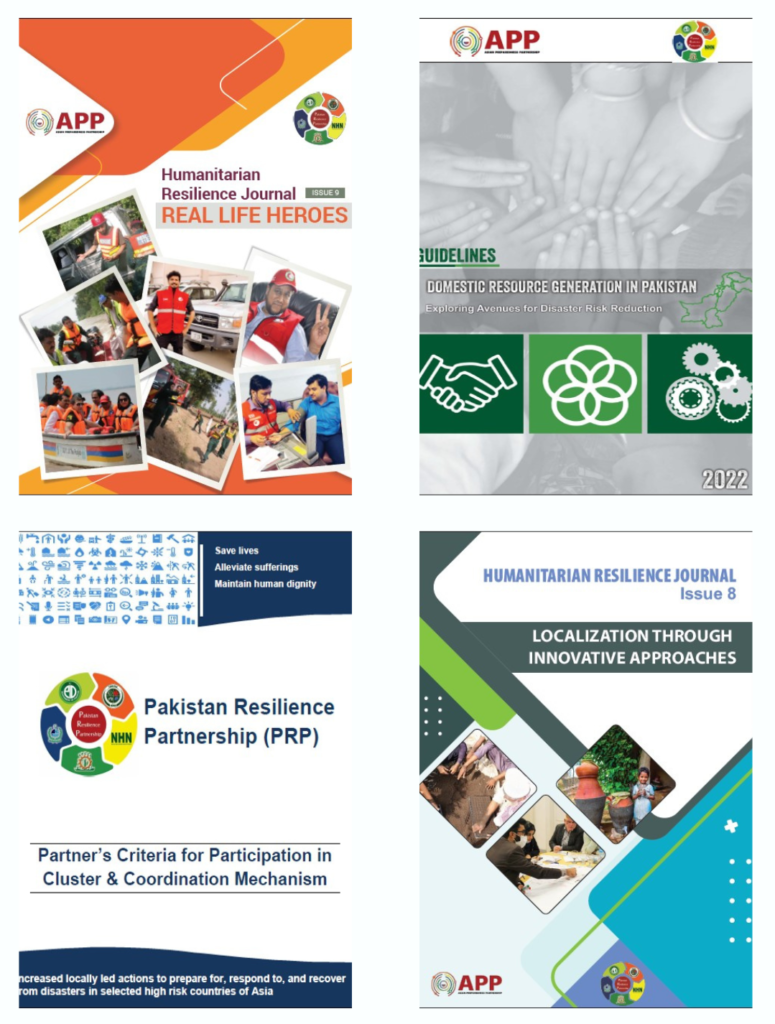
Strengthening the Many Capabilities of DRM Actors
PRP organized a number of training initiatives and online webinars to enhance the capacities of partners and stakeholders. A total of 178 volunteers attended three training sessions to build capacity and a basic understanding of response activities taken after the disaster to alleviate the suffering of people. Four webinars on cash transfer mechanisms transforming humanitarian assistance; linking relief, rehabilitation, and development; response planning at the local level; and humanitarian on the 5Ws (Pakistan Floods 2022) witnessed the engagement of 116 participants from the government, local non-governmental organizations, and other response institutions.
Local Action for Every Part of the Community
Disaster response in Pakistan is primarily coordinated between disaster management authorities and local stakeholders. PRP comprehends that the effectiveness of these actions is significantly dependent on adherence to the rights-based and inclusive approach to providing quality assistance. With this in mind, the partnership organized the Rights-based and Inclusive Approach in Localization training session. It introduced disaster risk reduction and management practitioners with core concepts underpinning a rights-based and inclusive approach to early warning, evacuation, and camp management for its application during any emergencies/ response. A total of 29 participants representing the government, LNGOs, and the private sector attended the training.
Investing in Facilities for Funding
Monsoon floods and other disasters have revealed the need to enhance organizational capacities to plan, create, and present high-caliber project proposals and reports in order to formulate proposals. PRP conducted two trainings on proposal formulation and technical report writing for 58 representatives from the government, LNGOs, and other sectors. The event helped the partners better understand how to generate and compile high-quality proposals and technical reports.
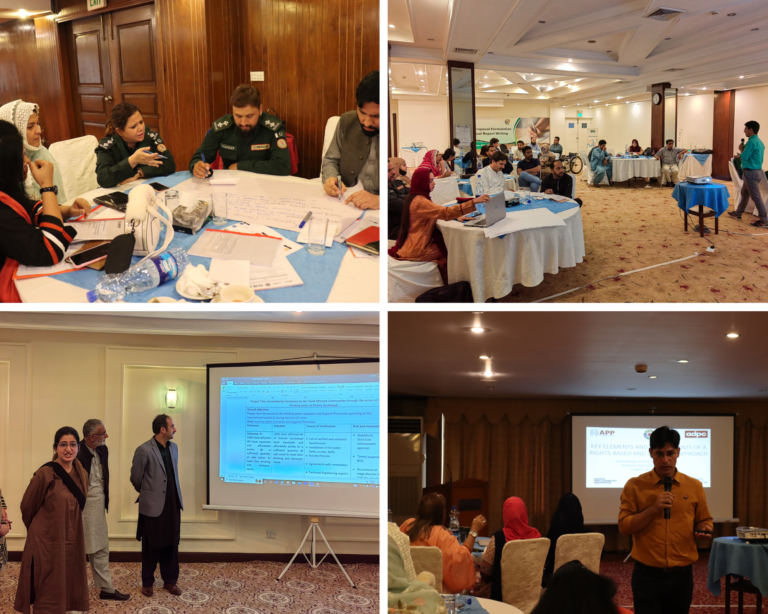
Scenario-Based Exercises for Improved Response
The applicability of policies is proven when they are implemented in respective scenarios. With this perspective, PRP organized a simulation/ mock exercise based on the plan outcomes for 25 stakeholders from the government, LNGO, and media sectors of the Swat District. It sought to validate the disaster response plans developed by PRP in collaboration with disaster management authorities. The session evaluated the efficacy of the plan, familiarize participants with their roles and responsibilities, and develop a pool of experts on activating the plan. The exercise supported a greater understanding of coordination mechanisms among various responders to harness the full potential for efficient disaster management in the district.
Education for Enhanced Resilience
PRP is strengthening its linkage with universities by consistently organizing consultative sessions and learning seminars on disaster management by specialists in the field. These events seek to strengthen the partnership’s connection with academic institutes and inform them of the importance of disaster management knowledge. A total of 112 students/facility members from various universities participated in these sessions.
